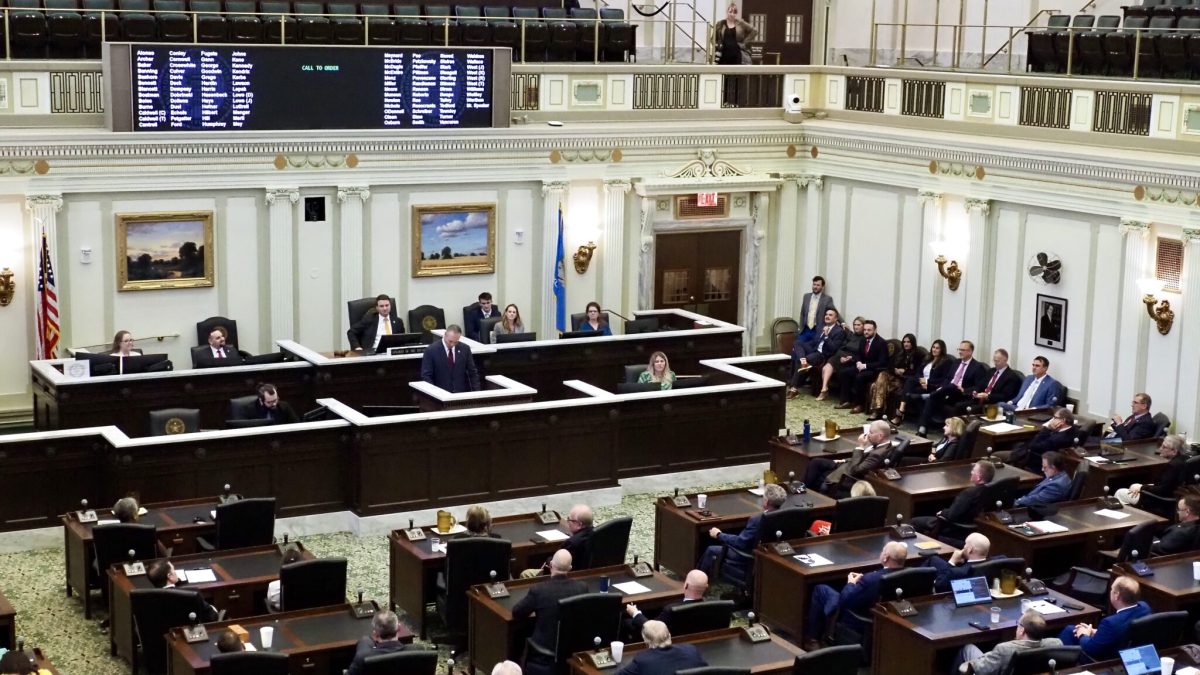Lawton, OK— A resolution introduced by an Oklahoma lawmaker is igniting a renewed debate over the separation of church and state, as it seeks to amend a section of the state constitution that prevents public funds from being used to support religious organizations.
Representative Mickey Dollens (D-Oklahoma City) has been vocal this week in opposition to Senate Joint Resolution 4, a proposal championed by Senator Dana Prieto. The resolution aims to remove the word “indirectly” from Article II, Section 5 of the Oklahoma Constitution, commonly known as the Blaine Amendment. This section prohibits the use of public money for the benefit of religious institutions or clergy, stating, “No public money or property shall ever be appropriated, applied, donated, or used, directly or indirectly, for the use, benefit, or support of any sect, church, denomination, or system of religion.”
The change, if passed, would no longer bar public funds from being used indirectly to support religious causes, such as through third-party contractors or services. Dollens argues that the resolution could pave the way for public funds to be used for religious materials or services, such as Bibles, by sidestepping the direct financial exchange with religious entities.
“It’s indirect so it’s not directly paying a minister with those funds, but it’s buying a service or working with a third-party contractor,” Dollens explained in a recent statement. He fears that such a shift in language would blur the lines between church and state and lead to government funding being used for religious purposes, a notion he believes would be detrimental to the state’s constitutionally enshrined separation of church and state.
Reverend Mitch Randall, a long-time advocate for maintaining the separation of religion and government, echoed Dollens’ concerns, calling it “wise policy to not fund sectarian causes at any level, not just directly but indirectly as well.” Randall argued that any attempt to alter the Blaine Amendment could lead to unintended consequences, such as public funding for religious materials or even for salaries of religious figures.
The debate is not new in Oklahoma, as there have been multiple attempts over the years to modify the Blaine Amendment. In 2016, voters decisively rejected State Question 790, which sought to remove a similar restriction, thereby reinforcing the protection against public funding for religious causes.
Opponents of SJR 4, like Dollens, worry that the change could lead to taxpayer dollars being used for religious purposes that were previously prohibited, such as the purchase of Bibles for public school students. This concern was highlighted when the State School Superintendent requested approximately $8 million in public funds to purchase Bibles and associated legal protections, raising alarms about the potential ramifications of loosening the Blaine Amendment’s restrictions.
Despite the controversy, Senator Prieto, who authored the resolution, maintains that the change would not violate the separation of church and state. In a statement to News 4, Prieto clarified that the goal of the bill is simply to “tighten up the language in Article II, Section 5 so that it is not so arbitrary or nebulous.” She insisted that the resolution would not infringe on any Supreme Court ruling related to the separation of church and state and would not alter statutes preventing the use of state funds for religious purposes.
As the debate continues, the future of the Blaine Amendment remains uncertain. Lawmakers will need to carefully consider the potential implications of such a change, balancing the need for clarity in the constitution with the longstanding principle of keeping public funds and religious activities separate.
The resolution’s fate is still up in the air, but it has already sparked significant discussion over the role of public money in religious affairs, and whether changes to the Blaine Amendment could redefine the boundaries of church and state in Oklahoma.




